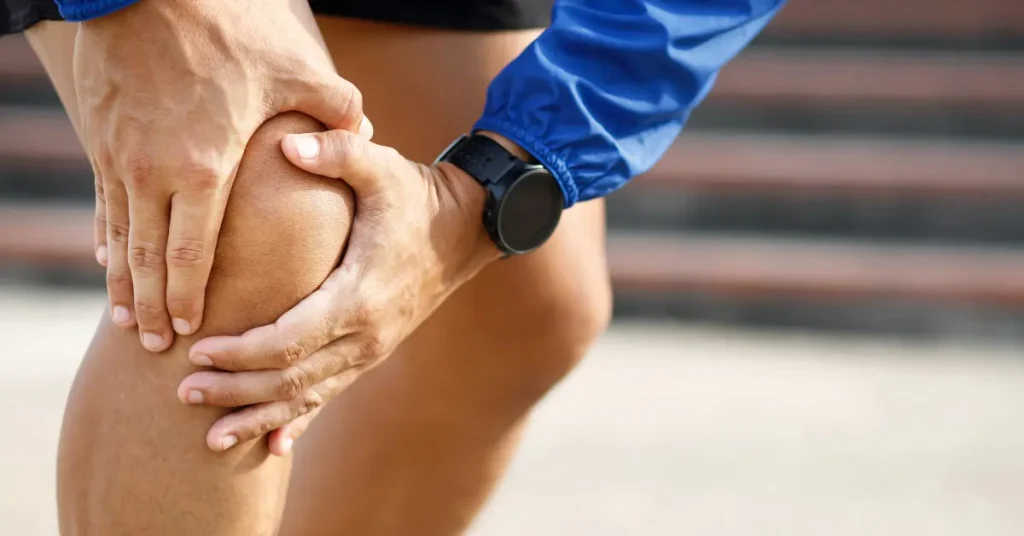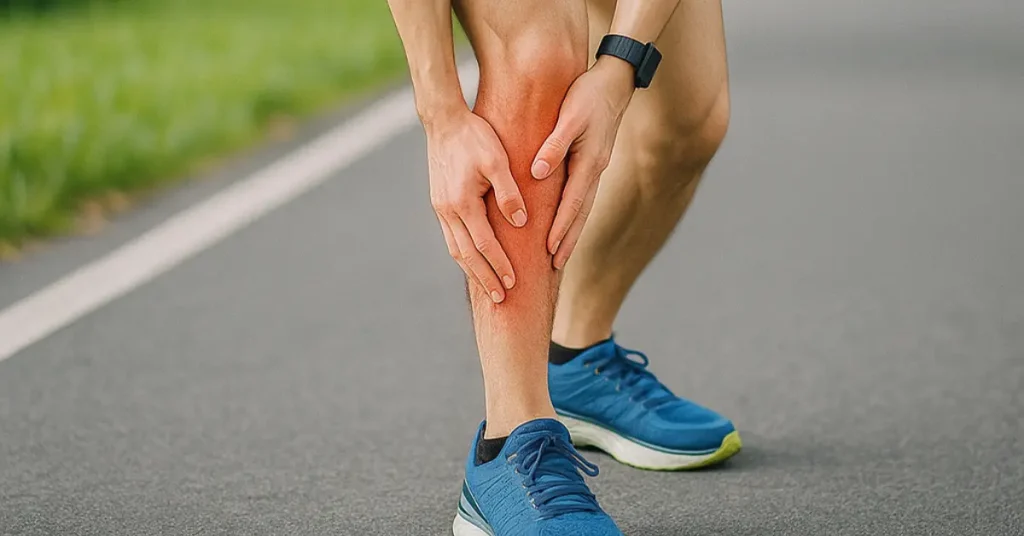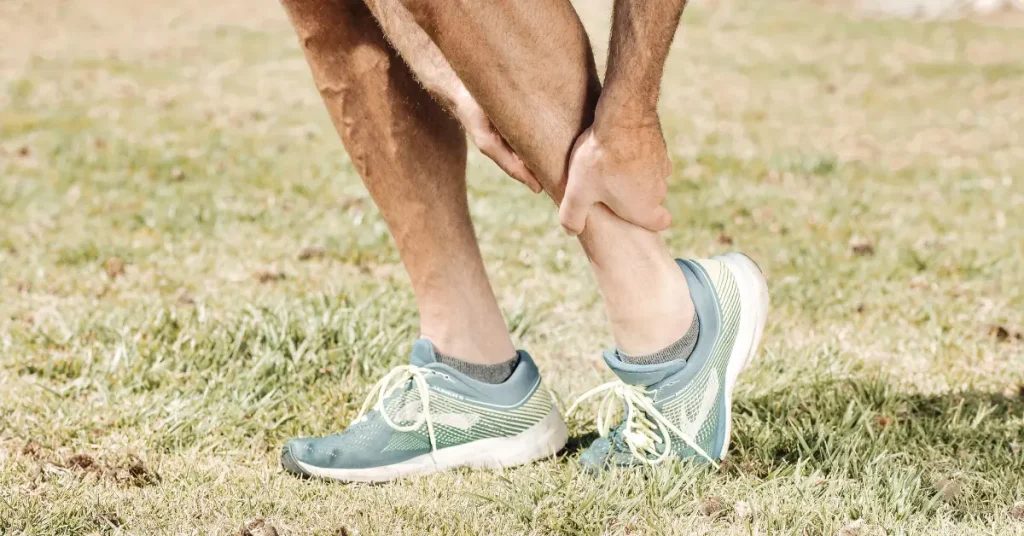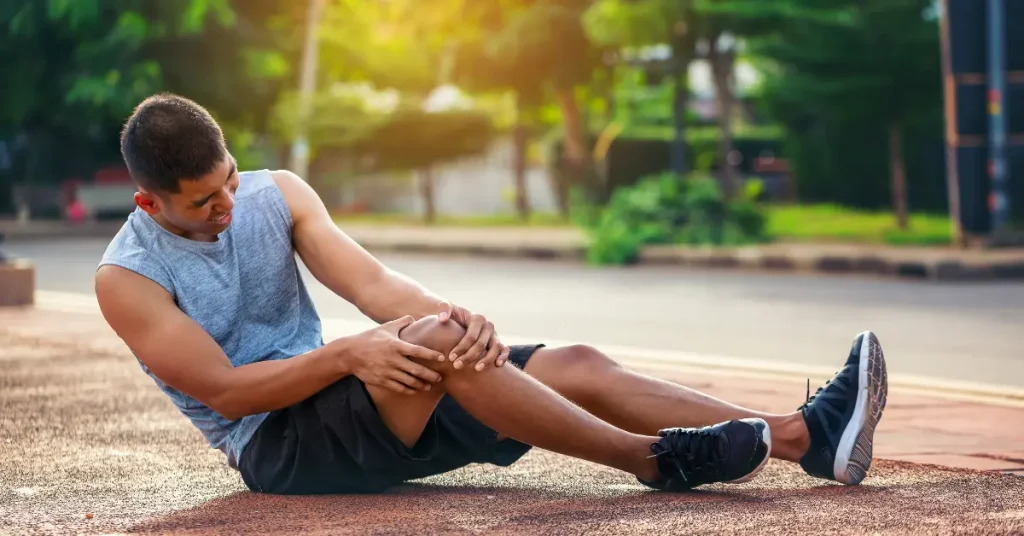When a sharp stabbing in the front of the knee disturbs stair climbing, jogging, or even sitting for a while, it’s not always so straightforward as a strain. In many instances, it turns into patellofemoral pain syndrome (PFPS), more commonly known as runner’s knee.
Many initially dismiss it as a minor problem. But when treated early, PFPS can do well and help you prevent chronic knee issues, unhampering common pursuits while pain stays in the past.
What is Patellofemoral Pain Syndrome?
PFPS occurs when your kneecap (patella) is not gliding properly in the groove on the thigh bone (femur). Such minimal misalignment can irritate the joint and instil discomfort in the front knee. One of the most prevalent reasons for knee pain, especially in:
- Runners and athletes
- Teenagers experiencing growing pains
- Individuals whose work requires bending or sitting for extended periods
- Although frequently associated with sports, PFPS can occur in anyone of any age.
What Causes PFPS?
PFPS may occur for numerous reasons, and in some instances, multiple reasons exist:
- Repeated Overuse or Stress: Running, squatting, or jumping repeatedly stresses the knee.
- Weak or Imbalanced Muscle: Weak quadriceps or hip muscles cause kneecap tracking impairment.
- Flat Feet or Misalignment: Asymmetrical knee joint stress inflames the cartilage.
- Injury or Trauma: An acute impact or a fall onto the knee.
- Tight Muscles: Overly tight hamstrings or calf muscles may pull on the joint.
- Arthritis or Joint Wear: Cartilage change or inflammation can lead to PFPS.
Symptoms of PFPS
The pain from PFPS gradually builds and worsens with activity. You may feel
- A dull, aching discomfort at the front of the knee
- Pain when going up stairs, squatting, or sitting with the knees bent
- Clicking or grinding on bending the knee
- Stiffness when sitting for a long time
- Swelling or tenderness near the kneecap
Diagnosis of PFPS
At Dr. Ahamed’s APPLE Clinic, diagnosis starts with a careful explanation of your symptoms and activity level.
- Physical Examination: Physicians press and mobilise the knee gently to test for tenderness and tracking.
- Movement Tests: Low-level activities such as squatting or walking assist in measuring pain provokers.
- Imaging Tests: X-rays or MRIs are occasionally utilised to diagnose arthritis, fractures, or cartilage damage.
- Alignment Checks:
Your foot arch, hip strength, and gait are checked to identify contributing factors. Early diagnosis enables the development of a treatment plan addressing your individual cause so that the pain does not become chronic.
When to Visit a Doctor in Chennai
You need to visit a knee specialist if:
- Pain persists for more than a week after rest.
- It prevents you from walking or performing daily activities.
- There’s swelling, locking, or popping with pain.
- Pain follows an injury or sudden twist.
Top Patellofemoral Pain Syndrome Treatment in Chennai
Treatment of PFPS aims to minimise pain, correct alignment, and strengthen muscles. Surgical treatment is rarely needed for most cases.
Non-Surgical Therapies
Rest and Activity Modification
Skip activities that exacerbate pain. Gradually resume movement with supervision.
Physical Therapy
Strengthening the quadriceps, hips, and core makes kneecap tracking better. Stretching loosens tight muscles.
Relief from Pain
- Use ice packs for swelling and heat to loosen tight muscles.
- Short-term NSAIDs such as ibuprofen should be taken.
Bracing or Taping
Supports keep the kneecap in line and minimise stress during activity.
Orthotics
Custom shoe inserts help balance your feet and reduce strain on the knees.
Lifestyle Changes
- Avoid prolonged sitting with bent knees.
- Change to low-impact activities such as swimming.
- Stay within a healthy weight.
Why Choose Dr. Ahamed’s APPLE Clinic for PFPS?
Expert Knee Care with specialized management of PFPS, knee pain, and conditions such as arthritis. Advanced non-surgical techniques such as therapy, bracing, and regenerative care are given. A personalized solution is given for each patient, with a unique plan which is designed to fit their recovery and lifestyle needs. An experienced and trusted knee and musculoskeletal healthcare team is available at all times.
Schedule an appointment now with Dr. Ahamed’s APPLE Clinic and begin your recovery.
Conclusion
PFPS is certainly bothersome, trivial knee pain; however, if left untreated, it can be a chronic misery. Early diagnosis and individually-assigned treatment by Dr. Ahamed’s APPLE Clinic usually leads to complete recovery with the avoidance of surgery.
Don’t let knee pain keep you from moving. Get proper care and get moving again without pain.
FAQs
Can PFPS heal on its own?
Mild cases may heal with rest alone, but continued pain should be seen by a doctor to prevent the risk of it becoming chronic pain.
How is PFPS diagnosed?
With physical exams, motion tests, and in some cases, imaging such as X-rays or MRIs, to eliminate other causes.
How long does the recovery process take?
Most recover in 4–6 weeks with therapy. More severe cases will take longer based on muscle strength and alignment.
Can adolescents develop PFPS?
Yes. It’s prevalent during growth spurts due to muscle imbalances.
Is surgery a common occurrence for PFPS?
No, it’s not common and is only suggested if non-surgical measures don’t alleviate the condition.




